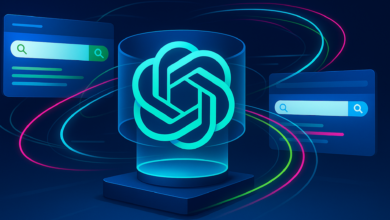OpenAI’s GPT-5 Pricing Could Trigger an AI Price War

▼ Summary
– OpenAI launched GPT-5 shortly after releasing two open-source models, with CEO Sam Altman calling it “the best model in the world,” though benchmarks show mixed performance against competitors.
– GPT-5 is competitively priced at $1.25 per 1M input tokens and $10 per 1M output tokens, undercutting rivals like Anthropic’s Claude Opus 4.1 and matching Google’s Gemini 2.5 Pro for lighter usage.
– Developers praise GPT-5’s affordability, with early adopters highlighting its aggressive pricing compared to GPT-4o and other leading AI models.
– The launch has sparked speculation about a potential LLM price war, as competitors may lower prices to match OpenAI’s move, benefiting startups reliant on AI APIs.
– Despite OpenAI’s pricing cuts, massive infrastructure investments by tech giants like Meta and Alphabet suggest long-term AI costs may remain high, tempering optimism for sustained affordability.
OpenAI’s latest AI model, GPT-5, has entered the market with competitive pricing that could reshape the landscape for large language models. The company’s aggressive cost structure undercuts major rivals, potentially sparking a price war that benefits developers and businesses relying on AI-powered solutions.
CEO Sam Altman proudly announced GPT-5 as “the best model in the world,” though independent benchmarks suggest its performance is comparable to leading alternatives from Anthropic, Google DeepMind, and xAI. Where OpenAI stands out is affordability, GPT-5’s API costs $1.25 per million input tokens and $10 per million output tokens, significantly cheaper than Anthropic’s Claude Opus 4.1, which starts at $15 and $75 for the same metrics. Google’s Gemini 2.5 Pro matches OpenAI’s base rates but becomes pricier for high-volume users.
Early adopters, including developers featured in OpenAI’s launch, praise the model’s cost efficiency. Simon Willison, a prominent programmer, described the pricing as “aggressively competitive,” while HyperWrite’s Matt Shumer noted that GPT-5 is even cheaper than OpenAI’s previous GPT-4o model. Industry observers speculate whether competitors will respond with their own price cuts, potentially triggering a broader race to lower costs.
The timing is critical. Many startups and coding tool providers struggle with unpredictable AI expenses, and a price war could ease financial pressures. However, the massive infrastructure investments required for AI, OpenAI’s $30 billion Oracle deal, Meta’s planned $72 billion spend, and Alphabet’s $85 billion budget, suggest that sustained affordability isn’t guaranteed.
For now, OpenAI’s bold pricing move puts rivals on notice. Whether they follow suit could determine if the AI industry enters a new phase of accessibility or if costs rebound as infrastructure demands grow. Developers and businesses will be watching closely, lower prices today might just be the opening salvo in a larger battle over AI economics.
(Source: TechCrunch)





